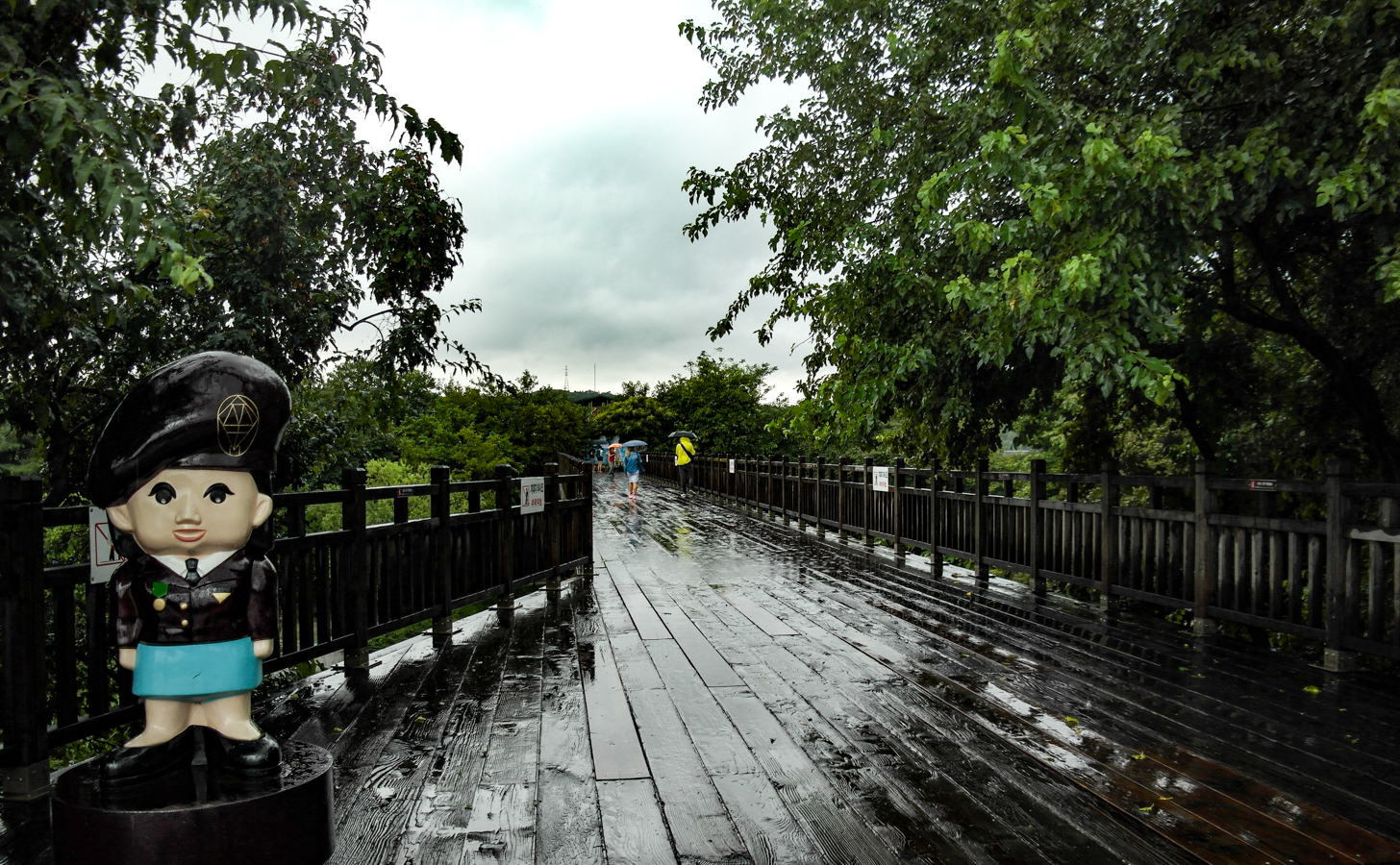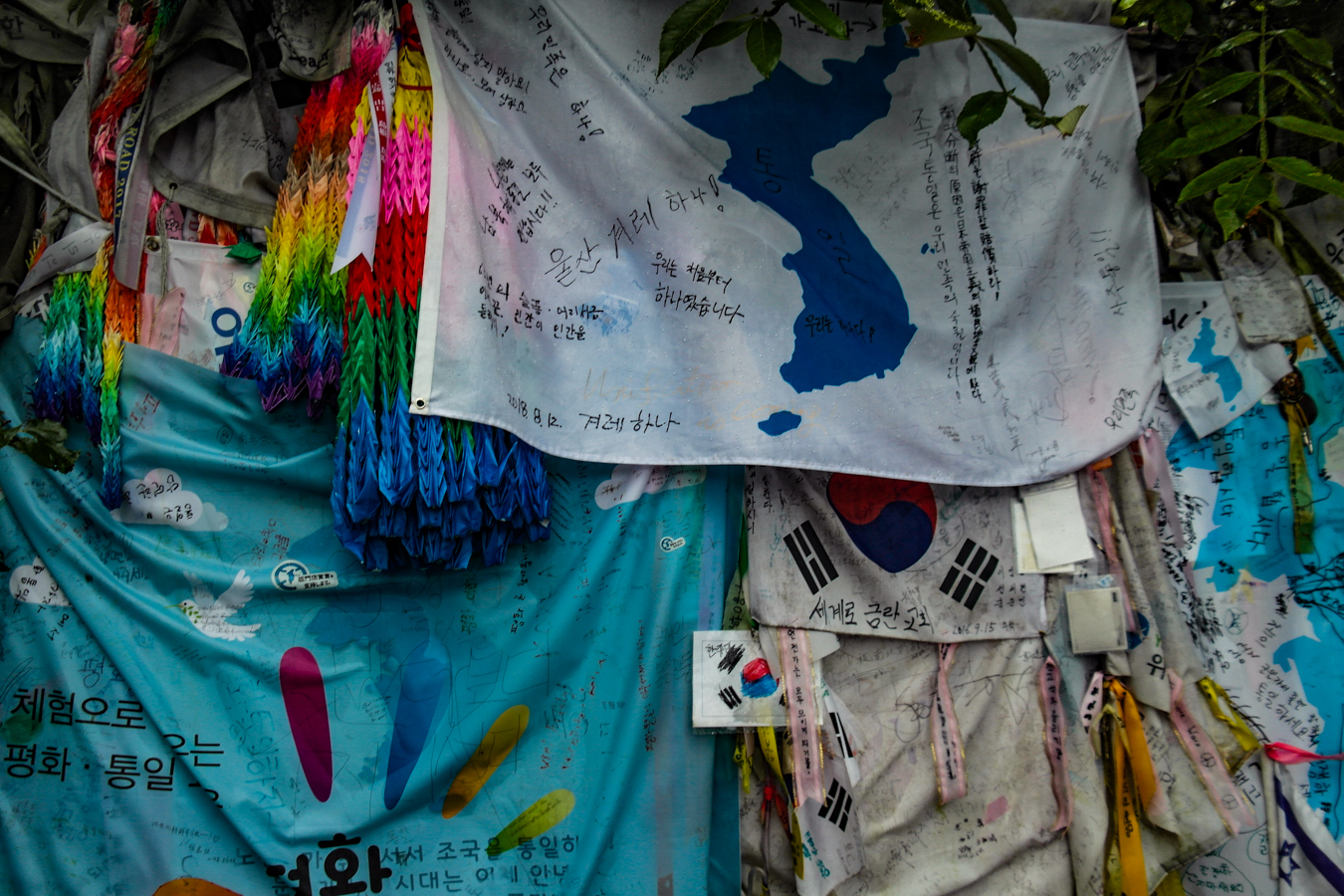Looking forward
Planting
seeds
for
the
future
Planting seeds
For Yeju Lee, the apples in South Korea were a bitter reminder of the home she left behind. Acknowledging the pain North Koreans endure in the permanent state of separation from home is important for supporting the defectors in South Korea.
Integration is a two-way process between a host country and a newcomer, but South Korea’s resettlement model is based on assimilation of North Koreans into South Korean society.
When North Koreans are in the Hanawon, they are required to shed their Communist upbringing, take on the ideals of capitalism and begin a new life as a South Korean. North Korean defectors must constantly straddle both identities.
A 2018 study published in The Journal of Asian Affairs found that although North Koreans are granted South Korean citizenship, they don’t feel a sociocultural citizenship. North Koreans don’t form positive identities as South Korean citizens. The report also points out that the longer North Koreans live in South Korea, the less likely they want to permanently settle there.

At the Freedom Bridge near the DMZ. Formerly a railroad bridge used by repatriated North Korean POWs. [Photo © Ash Abraham]
The reunification that is now
Thirty-thousand North Korean refugees can speak to life inside both North and South Korea. Reunification of North and South Korea is a future aspiration, but defectors living inside South Korea can offer a current picture of what the post-reunification peninsula could look like.
Large government-funded programs through the Ministry of Unification lay a foundation for resettlement and integration. However, the massive programs miss the nuances of each North Korean refugees’ experience. Liberty in North Korea, Teach English to North Koreans and PSCORE are non-profit organizations that prioritize relationship-building and mentorship between North and South Koreans. Establishing social communities between both North and South Koreans can build up the future of the peninsula and also decrease mental health issues such as Post-Traumatic Stress Disorder.
A recent study in The Social Science & Medical Journal found:
“Positive social and familial relationships are effective buffers against effects of adverse life events on mental health. In particular, friendships with South Korean peers were predictive of better adaptation…Higher perceived social support consistently predicted better psychological adaptation with higher unofficial social support – such as support from family members and friends – being particularly strongly related to lower depression and anxiety symptoms.”

Signs call for one unified Korea at Peace Park at the border of North and South Korea. [Photo © Ash Abraham 2018]
One Korea
Building up mutual respect between North and South Koreans through casual events can dispel longstanding stereotypes, establish trust and provide North Koreans with opportunities to share their home.
Jihyun Roh organizes opportunities for North and South Koreans to get to know one another though games and social events.
“The other day we played charades and I acted out the North Korean proverb: Don’t suck out the blood of a mosquito’s leg, which means you shouldn’t take advantage of people who don’t have a lot,” says Roh. “South Korea has a similar proverb with a similar type of wisdom.”
Roh says that both the North and South Korean participants immediately understood what the proverb meant, despite the language differences.
“It was healing moment,” he says.
Although the proverb used different language the root message was the same, and exploring the difference helped participants feel closer to one another.
While social opportunities won’t denuclearize the Korean Peninsula, it will bring Korea closer to reunification by building up relationships between North and South Korean people.
Expecting North Koreans to forget their homeland and their national identity created feelings of isolation for the five women profiled for this piece and for many more like them. Providing more opportunities for North Koreans to share their culture could help refugees better integrate into South Korea, and plant seeds in the soils of a future unified peninsula.
